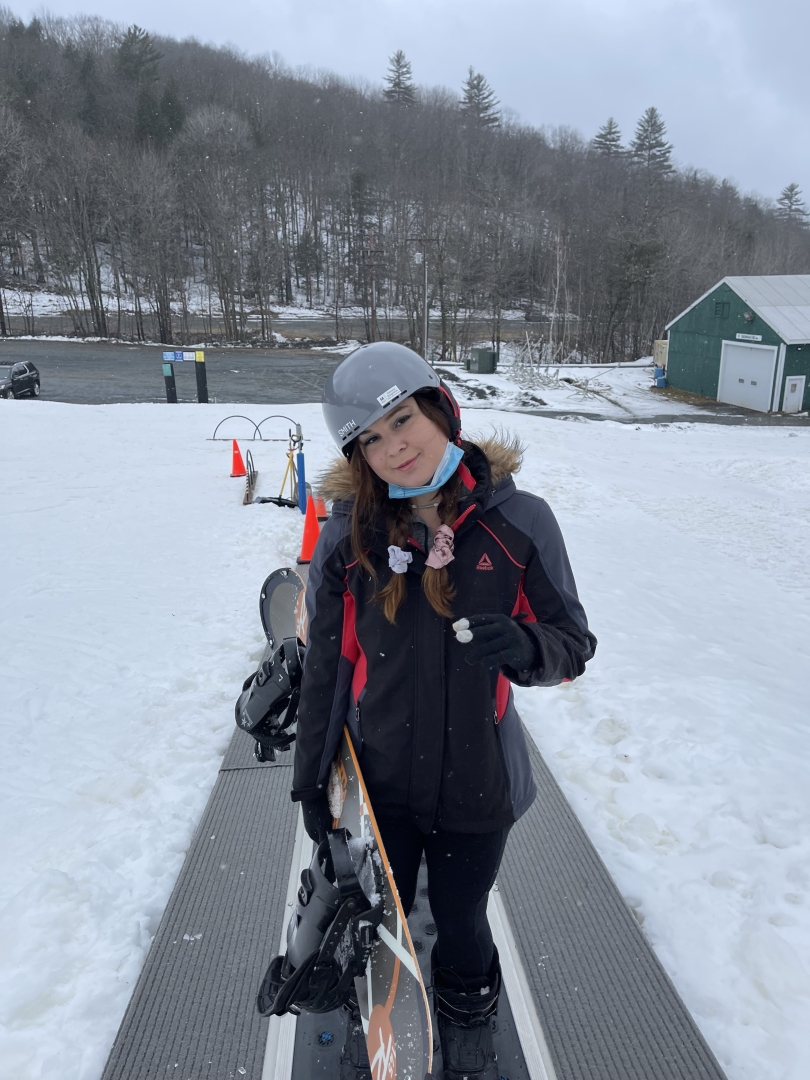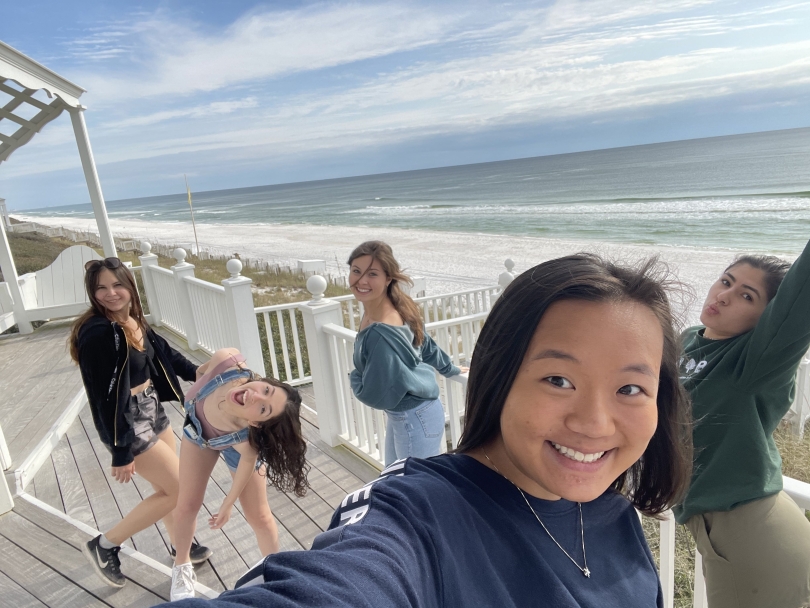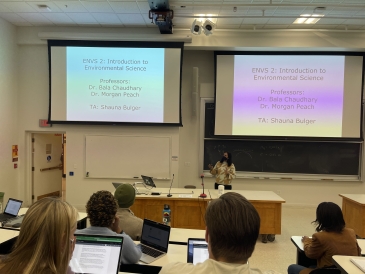
A Sophomore's Winter Class Schedule
Dartmouth operates on the quarter system, which means students take three classes per term and accumulate a total of 35 credits over their four years. This winter, I'm taking two classes that go towards my Environmental Studies major and one core Economics course.
With the recent Omicron surge, many U.S. colleges have started remote learning this term, but I'm so happy Dartmouth took measures to keep our learning experience in person. The day I arrived on campus, I headed to the Dartmouth Skiway with my friend to enjoy the snow.

Anyways, back to academics—here's a glimpse of my classes thus far!
ECON 22: Intermediate Macroeconomics
Unlike how ECON 1 (The Price System: Analysis, Problems, and Policies) introduces the basics of microeconomics, ECON 22 (Macroeconomics) takes a top-down approach to look at the economy as a whole. This discussion-based class analyzes the large-scale decisions made by countries and governments instead of individuals or specific companies. Professor Comin provides us with real-life case studies that teach us how to think responsibly like managers in multinationals, government officials, and professionals in the financial sector. We're beginning to answer questions like why is today's average American more than 10 times richer than 100 years ago? What is causing the increase in inflation? How does the growth of China impact the US dollar?
ENVS 2: Introduction to Environmental Science
ENVS 2 is my first science class since taking AP Chemistry during my senior year of high school. This introductory, lecture-focused course teaches us to what degree human activities are accelerating ecosystem decline and what role we have in influencing the trajectory of climate change. Professor Peach, Professor Chaudhary, and our TA Shauna are extremely kind and accessible through email and Zoom "Coffee Hours." We're learning about topics like agricultural systems, human population cycles, water pollution, land degradation, and solid waste and recycling. A huge component of the course is looking at creative evidence-based solutions that inspire hope and help debunk the myth that environmental science is all doom and gloom.
ENVS 80.08: The Practice of Science Policy and Diplomacy
My favorite course so far!! This smaller seminar explores the science policy process through simulations, memo writing, and group projects. After taking classes like INTS 16: Introduction to International Development and INTS 18: Global Health and Society, this summer I realized I'm one-third done with completing the public policy minor on the international development track. Professor Burkins is incredibly knowledgeable in her field and wears many hats, including serving as Director of the Institute of Arctic Studies and Chair of the U.S. National Academies' Board on International Scientific Organizations (BISO). I'm excited to learn more about the Sustainable Development Goals and participate in a model Arctic Council simulation later this term!
As I look ahead to the future terms, I'm excited for my first Green Key this spring, sophomore summer where the Class of 2024 will be united on campus, and am currently applying for study abroad programs for my junior fall. Stay tuned for more updates!





















